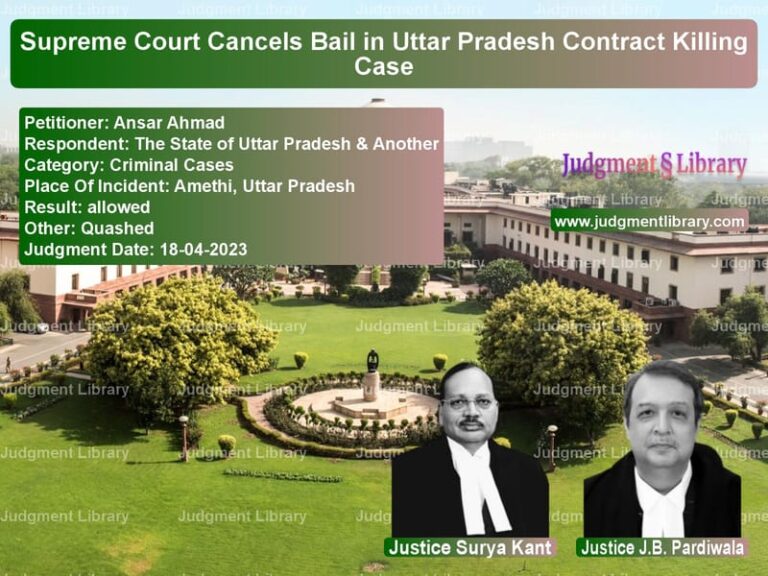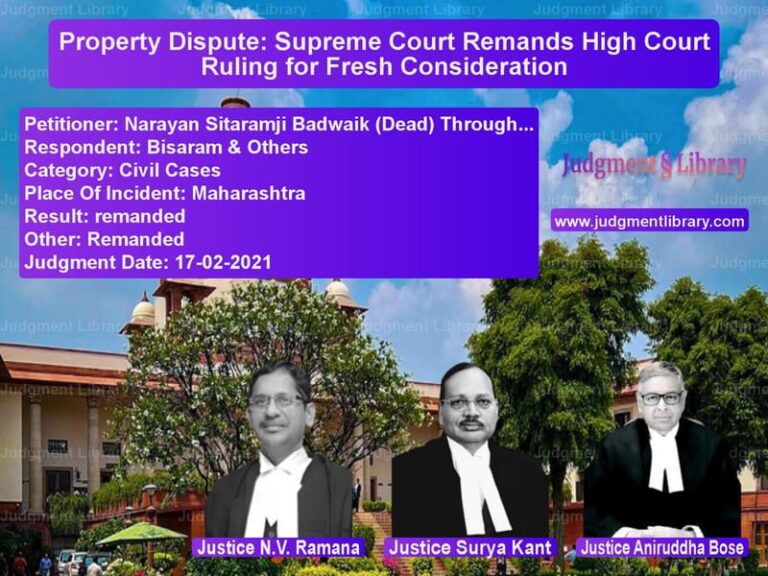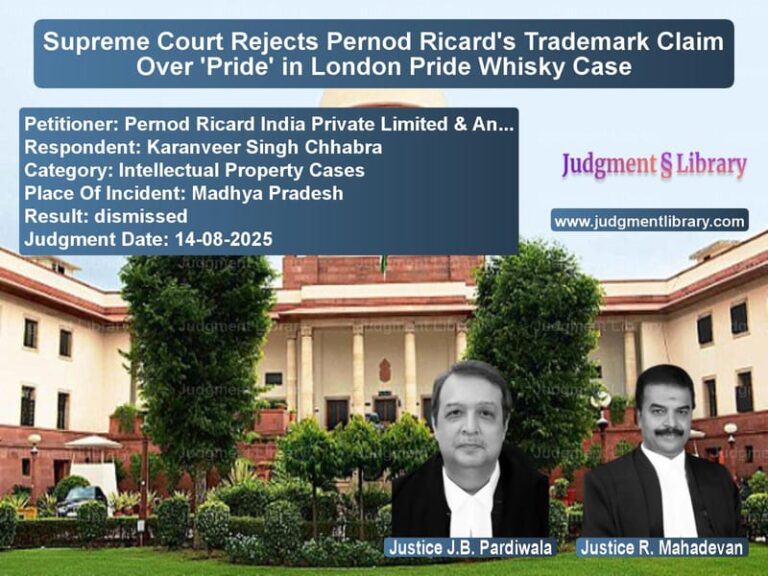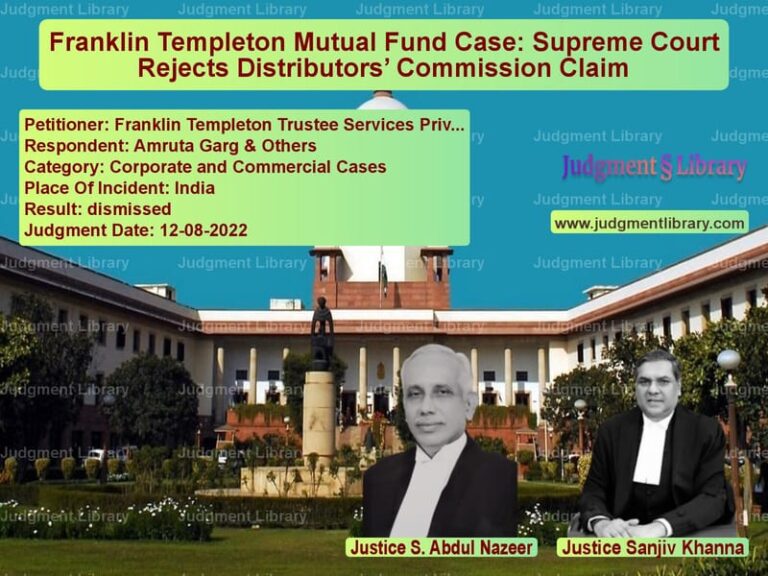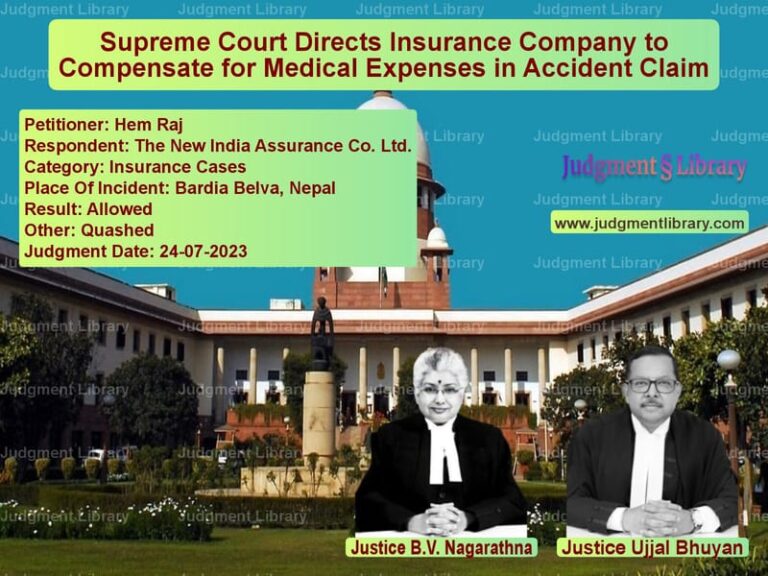Supreme Court Ruling on Mere Membership in Unlawful Organizations: A Legal Analysis
The Supreme Court of India recently delivered a significant ruling in the case of Arup Bhuyan v. State of Assam, which addressed the question of whether mere membership in an unlawful organization is sufficient to constitute a criminal offense. This judgment has far-reaching implications for constitutional rights, particularly concerning freedom of association under Article 19(1)(c) of the Indian Constitution.
The case revolved around the interpretation of Section 10(a)(i) of the Unlawful Activities (Prevention) Act, 1967 (UAPA), which penalizes individuals who continue to be members of an unlawful organization after it has been banned by the government. The Court had to determine whether this provision required an additional element of criminal intent (mens rea) or overt acts beyond passive membership.
Background of the Case
The matter was referred to a larger bench following concerns raised by the Union of India and the State of Assam. The Solicitor General argued that the earlier judgments in State of Kerala v. Raneef (2011) and Arup Bhuyan v. Union of India (2011) had incorrectly applied American constitutional doctrines to Indian law, leading to a misinterpretation of the provisions under UAPA.
In these earlier cases, the Supreme Court had ruled that mere membership of a banned organization was not enough to establish criminal liability unless the individual engaged in or incited violence. This interpretation was based on American legal precedents, including Elfbrandt v. Russell (1966) and Brandenburg v. Ohio (1969), which reject the doctrine of “guilt by association.”
Arguments of the Parties
Petitioner’s Arguments
- The petitioners contended that the provisions of UAPA should be read in consonance with Articles 19 and 21 of the Constitution, ensuring that individual liberty is not curtailed arbitrarily.
- They relied on previous Supreme Court rulings, arguing that criminal liability should be based on active participation in unlawful activities, not passive membership.
- The petitioners asserted that a person cannot be penalized merely for being part of an organization unless there is intent to further its unlawful objectives.
Respondent’s Arguments
- The State of Assam and the Union of India argued that membership in a banned organization inherently poses a threat to national security.
- The Solicitor General emphasized that UAPA was enacted to prevent activities that could undermine the sovereignty and integrity of India.
- They contended that the earlier judgments had misinterpreted the law by incorporating foreign legal principles without considering India’s constitutional framework.
Key Observations of the Supreme Court
The Court reviewed the legislative intent behind UAPA and examined whether passive membership could be deemed criminal. The bench made the following crucial observations:
- Applicability of Foreign Jurisprudence: The Court ruled that American precedents could not be directly applied to Indian law, given the explicit provisions under Article 19(2) and 19(4) that allow reasonable restrictions on fundamental rights in the interest of national security.
- Constitutional Validity of Section 10(a)(i) of UAPA: The Court held that this provision did not require additional proof of violent intent, as membership in a banned organization itself implied continued allegiance to its unlawful objectives.
- Distinction Between Active and Passive Membership: While the petitioners argued for a distinction between active and passive membership, the Court ruled that once an organization is declared unlawful, any continued association with it is punishable under the law.
Final Ruling
The Supreme Court overturned its previous rulings in Arup Bhuyan (2011) and Indra Das (2011), declaring that mere membership in a banned organization under UAPA is sufficient to establish criminal liability. The Court emphasized that:
- Once an organization is declared unlawful, individuals associated with it must disassociate themselves immediately to avoid legal consequences.
- The government has the authority to impose restrictions on such associations in the interest of national security.
- The provision under UAPA does not require the prosecution to prove further acts of violence or incitement beyond membership.
Implications of the Judgment
This ruling strengthens the government’s ability to curb activities of banned organizations but also raises concerns about potential misuse. Critics argue that criminalizing passive membership could lead to arbitrary arrests and suppression of dissent. However, the Court has reaffirmed that the law operates within the framework of constitutional safeguards and judicial oversight.
Conclusion
The Supreme Court’s decision in this case marks a significant shift in India’s legal landscape regarding counter-terrorism laws. By affirming the criminal liability of individuals who remain members of banned organizations, the Court has reinforced the importance of national security while also highlighting the need for responsible legislative enforcement.
Petitioner Name: Arup Bhuyan.Respondent Name: State of Assam.Judgment By: Justice M. R. Shah, Justice C.T. Ravikumar, Justice Sanjay Karol.Place Of Incident: Assam.Judgment Date: 23-03-2023.
Don’t miss out on the full details! Download the complete judgment in PDF format below and gain valuable insights instantly!
Download Judgment: arup-bhuyan-vs-state-of-assam-supreme-court-of-india-judgment-dated-23-03-2023.pdf
Directly Download Judgment: Directly download this Judgment
See all petitions in Terrorist Activities
See all petitions in SC/ST Act Case
See all petitions in Cyber Crimes
See all petitions in Money Laundering Cases
See all petitions in Judgment by Mukeshkumar Rasikbhai Shah
See all petitions in Judgment by C.T. Ravikumar
See all petitions in Judgment by Sanjay Karol
See all petitions in dismissed
See all petitions in supreme court of India judgments March 2023
See all petitions in 2023 judgments
See all posts in Criminal Cases Category
See all allowed petitions in Criminal Cases Category
See all Dismissed petitions in Criminal Cases Category
See all partially allowed petitions in Criminal Cases Category


